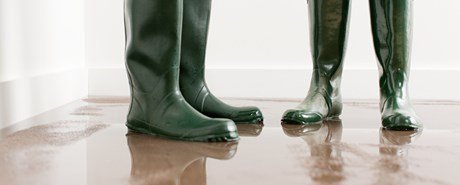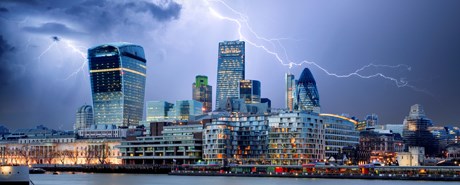Knowing that your business premises is safe and secure is of utmost importance to any business owner. A break-in or damage to your business property is not only distressing for you and your employees, it can also threaten your business itself.
While you can’t completely remove the risk of your business premises being broken into or damaged, there are some steps you can take to protect it as best you can. How can you improve your business premises’ security?
Here’s our business security checklist to help keep your business property secure:
1. Lock out intruders
It might sound obvious, but installing suitable locks for your business premises is key. Sometimes certain locks are required by insurance companies, so check if this is the case with yours, but a five-lever mortice deadlock that conforms to BS 3621 is generally recommended.
Remember that your business property must be locked every time it’s left unoccupied, even if you’re just popping out for a team lunch, or to a quick offsite meeting.
2. Don’t forget about your doors and windows
Glass doors are generally a no-no, as they’re easier for burglars to break into. Doors can also be strengthened with steel strips fitted to the door frame and around the lock.
As for windows, they should be closed and locked whenever your business premises is empty, and you should consider fitting some security bars if you feel you need an extra layer of protection.
3. Secure the area around your business premises
If you have an external boundary, i.e. a wall or fence, ensure that it is adequate. Plus, think about going one step further by adding barbed wire to your wall or fence.
Keep any ladders, tools or wheelie bins stored away – by doing this, you’re making it more difficult for any would-be thieves to get into your property.
In a built-up area? By illuminating any points of entry with motion-detection lights, passers-by will be alerted to anyone trying to break in.
4. Consider using a monitored alarm or security system
It goes without saying that your business premises should have an appropriate alarm system.
There are lots of different types to choose from, and one key consideration as a business owner is whether or not you go for a monitored alarm.
A monitored system is connected to a specialist company that will alert a nominated person and the police when it goes off, providing an extra layer of security. Considering many people ignore the sound of an alarm or just find it annoying, this could certainly be worthwhile.
Remember to check that your alarm system is compliant with your insurer’s terms before you install it.
5. Deter would-be criminals with motion-detection lights and CCTV
As well as installing an alarm system, what other electronic security measures can you take to protect your business against crime?
Security lighting
As mentioned, surrounding your business premises with exterior motion-detection lights will help scare off anyone that’s up to no good.
CCTV
Just the realisation that a business has a surveillance system can be enough to put off unscrupulous types. And even if they go ahead and commit a crime, there’s a better chance of police catching them if you’ve got footage of them doing the deed. Just bear in mind that you must follow the Data Protection Act, as per the guidance on gov.uk, and consider the various different types of CCTV systems available: From the number of cameras to wired vs wireless, there’s a lot to think about.
Need help choosing a suitable business security system? Find an approved supplier via SSAIB.
6. Know who’s in your building: Establish clear security procedures
Visitor access to your business premises should be controlled. In an office environment, for example, this is often via a sign-in process. Many offices also have speed gates or turnstiles that allow authorised personnel to enter and exit the premises.
Ask your employees to wear identification around your business property, and question anyone who doesn’t appear to be doing so.
Also, who is responsible for locking up at the end of the day? Does one employee or multiple employees hold the keys to your business premises?
It might be the case that you need to take on additional resource to help keep your business property safe, such as security personnel, or a receptionist at the main entry point.
7. Hide your business’s valuables
Be careful about having expensive business equipment and tools on show, and try to make use of safes where possible. Laptops, for example, are easy to hide away from prying eyes.
If cash is handled onsite, keep it to a minimum, and ensure your employees are trained in how to handle cash sensibly.
Also be aware of where keys are kept, especially if your business premises has company vehicles. Make sure that opportunistic thieves can’t take advantage by storing keys out of sight.
8. Plan for when your business property is unoccupied
If your business premises is going to be unoccupied for any length of time, firstly check with your insurer that your cover won’t be affected in any way, and take the following precautions:
- Use lighting timers to give the impression that someone’s at the premises, and deter any delinquents.
- To avoid the issue of post piling up while your business property lies empty, seal the letterbox shut from the inside.
- An office Christmas party, an industry event or a fun away day might seem like good reasons to post on social media, but be careful – by sharing too much, you could be advertising your empty business premises to burglars.
9. Stay vigilant and be prepared
We can all become complacent in life, but it’s important to regularly review your commercial property’s security measures:
- Check your alarm system is working as it should be – it could be a good idea to have this professionally maintained.
- Inspect your access points, including any lights that might need replacing.
- Think about joining forces with local businesses, and keep an eye out for one another.
10. Minimise any losses
Unfortunately, you could still become a victim of crime, despite taking all the right steps to prevent it. You might be able to minimise any losses that occur, should your business premises be targeted:
- Create and maintain an inventory of all your assets, including photos, and mark the property with a UV pen.
- After an incident, immediately inform the police and your insurer.
- Be mindful that criminals may return after the event, as they know you’ll have replaced any stolen goods – be extra-vigilant in the following weeks, and take stock of all your security measures.
More business guides
Flood Guides

Flood insurance for Business
Your business is your source of income, as well as potentially a big investment – so if it is hit by a flood, it’s important to act fast.
Storm Guides

Storm damage and your business
We've created this guide to help you find the answers to the most commonly asked questions about how to protect a business against storm damage and what to look for from your insurance cover.